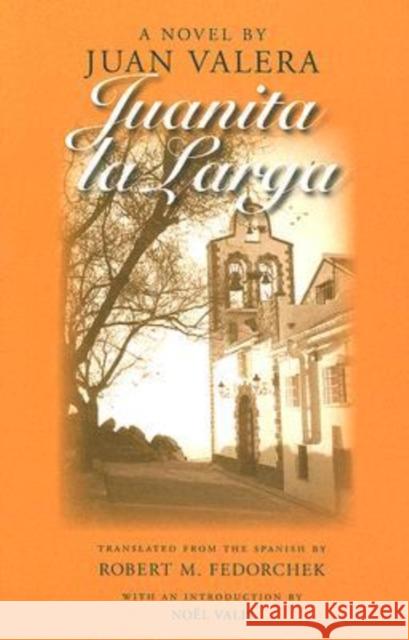Juanita La Larga » książka
Juanita La Larga
ISBN-13: 9780813214351 / Angielski / Miękka / 2006 / 260 str.
Juanita La Larga
ISBN-13: 9780813214351 / Angielski / Miękka / 2006 / 260 str.
(netto: 111,90 VAT: 5%)
Najniższa cena z 30 dni: 115,83
ok. 30 dni roboczych.
Darmowa dostawa!
Juanita La Larga (1896), the third of Juan Valera's eponymous novels with a female protagonist, unfolds in a small town in nineteenth-century Spain and tells the story of a young girl's romance with a wealthy widower many years her senior. In addition to their substantial difference in years and class, the lovers must contend with the indignation of his imperious married daughter, the public rebuke of a churchman, and the strictures of society. As the novel opens, readers are introduced to Juanita in the exuberance of youth. We witness her maturation into a young woman and along the way we watch as she learns to deal with humiliation, anger, jealousy, and a pride that makes for bittersweet moments. Juanita reveals a cunning personality that is complemented by a dogged determination and an iron will; once she realizes what she wants in life neither the fear of reprisal nor the prospect of ostracism deters her. Other well-conceived, well-delineated characters are Juana, Juanita's mother and village do-it-all; Dona Ines, the haughty, sanctimonious daughter of the widower Don Paco who falls head over heels in love with Juanita and wants to marry her; Don Alvaro Roldan, Dona Ines's dissolute husband; and Don Policarpo, the town druggist. This charming work appears here for the first time in English and is elegantly translated by Robert M. Fedorchek. Juanita la Larga gives Valera an opportunity to describe, in loving detail, life in an Andalusian hamlet: its social levels, political intrigues, religious observances, rustic amenities, and hearty fare. But above all it offers a vibrant picture of Juanita, a worthy sister to other Valera heroines like Pepita of Pepita Jimenez (1874) and Luz ofDona Luz (1879).











